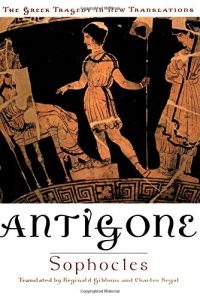 Antigone, a play written by Sophocles, is a remarkable example of leadership that is not often discussed in management textbooks. While most leadership examples come from assigned leaders such as CEOs or departmental managers, leadership often starts with rebellion from someone who is not in a position of authority. Antigone, the titular character of the play, serves as a prime example of an informal leader who challenges authority.
Antigone, a play written by Sophocles, is a remarkable example of leadership that is not often discussed in management textbooks. While most leadership examples come from assigned leaders such as CEOs or departmental managers, leadership often starts with rebellion from someone who is not in a position of authority. Antigone, the titular character of the play, serves as a prime example of an informal leader who challenges authority.
Antigone’s name, which is derived from the Greek words “anti” meaning “against” and “gon” meaning “corner,” embodies her role in opposing and challenging the order. Despite King Creon’s authority, Antigone refuses to blindly obey him. She knows that her brother Polyneices has the right to be buried like his brother Eteocles after their death in the war, and she stands up for what is right. Antigone’s sense of justice and her willingness to confront the king, despite the potential consequences, demonstrate her leadership qualities. She is not afraid to live with the consequences of her actions, knowing that an honorable person-leader should do the right thing at the cost of death.
Even though management textbooks often do not include the concept of objection, it is a crucial ingredient in leadership. Leaders are tasked with creating change, and change is only possible by changing direction. Just like rivers, which follow their course until they encounter an obstacle, a leader can create change by opposing the status quo. In organizations, middle-level managers or employees can play the role of Antigone and ignite change through their opposition.
In conclusion, Antigone’s leadership qualities provide a unique example of leadership that is often overlooked in management textbooks. Her unwavering sense of justice and her willingness to oppose authority demonstrate the qualities of a true leader. Her example reminds us that leaders can come from any level of an organization, and that challenging the status quo can be a catalyst for positive change.





An interesting book on leadership to read, I have never read a book like this. Thanks shared this